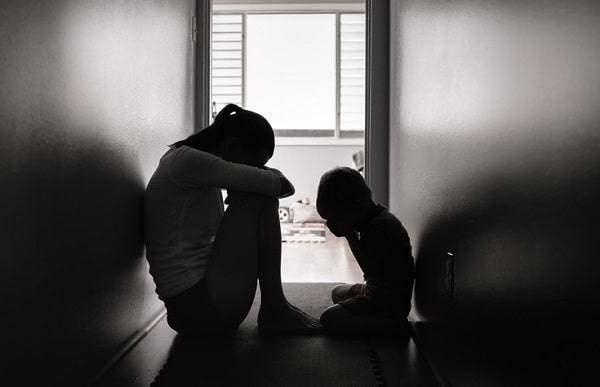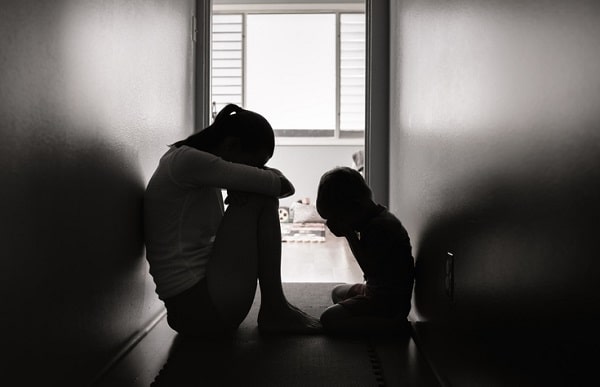Protecting kids from eviction: They need us to take action

© 2021 Gwen Dewar, Ph.D., all rights reserved

Everybody says it. Politicians, corporations, lobbyists, investors, major media outlets, policymakers.
They say they care about children. They say we must make sure that our children are thriving. They say we must provide them with the opportunities they need become happy, productive, contributing members of society.
But these are empty words, and they will remain empty words until we follow through.
Today — in the United States — we have an urgent example of this.
How are things going for American families right now? Parents and their children?
Let’s take a look at the latest data for the summer of 2021. Data collected by the U.S. Census Bureau’s Household Pulse Survey between June 23 – July 5, and analyzed by the non-partisan think tank, The Center on Budget and Policy Priorities.
Among adults living with children, 1 in 7 reported that their households “sometimes or often” didn’t have enough to eat.
Among renters, 1 in 5 households with children were not caught up on their rent.
And the biggest item of all:
Over 1 in 3 children living in renter households were facing food hardship, housing hardship, or both.
That’s what the latest survey shows. That’s the snapshot of American families taken between June 23rd and July 5th of 2021.
Why did the U.S. Census Bureau conduct this survey?
It’s part of a project started back in April 2020, an effort to monitor the economic havoc that has been caused by the global pandemic.
What else has been done in response to this crisis?
For 11 months, the United States maintained a federal moratorium on residential evictions. It has offered some protection to struggling, renter families from being cast out of their homes.
In addition, the federal CARES Act of March 2020 was intended to provide cash relief to both tenants and landlords.
But, as the Center for Public Integrity explains, “more than 425 million dollars promised for rental assistance didn’t make it to tenants or their landlords.” State governments failed to pass along what had been allocated.
And Congress dropped the ball. They failed to take action to extend the moratorium on evictions past July. On Friday, July 27, Congress officially adjourned for a summer break.
So now we have a lot of families — families with children — who are at risk for being evicted during a pandemic. And many states and local governments are unprepared to cope.
What now?
I don’t need to tell you that evictions are nightmarish, that they are linked with a cascade of problems down the line.
Eviction puts a mark on your record, making it very difficult to secure housing in the future. It puts you at higher risk for infection and mortality, especially during a pandemic. It’s linked with hunger. Kids who have endured eviction have twice the risk of experiencing food insecurity (Leifheit et al 2020).
And when millions of children get stuck living in poverty — or near poverty — it puts everyone at risk. It creates instability, a huge underclass of people who can’t contribute positively to the economy.
But no. I don’t need to go into any of this, because we’re already in agreement, right? Everybody cares about kids. Even if kids were the only victims of these evictions, that would be enough. We’d act now.
Congresswoman Cori Bush is demanding that Congress immediately reconvene and address this crisis. If you care about kids, you know she is right. It doesn’t matter what your politics are. It doesn’t even matter who is to blame for the current situation (and there’s plenty of blame to go around).
What matters is we fix it. That we start acting on our pretty words.
As I’ve argued elsewhere, raising children isn’t a vanity project or personal hobby. It’s hard work, costly work, work that is essential for the continuation of society. And it’s too much work for parents to manage on their own.
Hunter-gatherers know this. That’s why people in hunter-gatherer societies look out for each other. They help parents with the care-giving burden. They provide families with food subsidies. Because it’s impossible otherwise. Parents would fail. Children would wither. And the entire society would face an existential threat. Group survival depends on strong, healthy, productive neighbors.
It can feel overwhelming, these terrible problems. But if parents put pressure on politicians and policymakers, we will have an impact. So if you are in the United States, tell your congressional representatives – at the federal and state levels – what you think.
You don’t need to make a speech or write a long treatise. A brief message is enough.
If you’re not sure how to begin, this link, https://www.house.gov/representatives/find-your-representative, will take you to a page where you can look up the person who represents you in the U.S. House of Representatives. Find that person, and leave a message on their official contact form.
References
Leifheit KM, Schwartz GL, Pollack CE, Black MM, Edin KJ, Althoff KN, Jennings JM. 2020. Eviction in early childhood and neighborhood poverty, food security, and obesity in later childhood and adolescence: Evidence from a longitudinal birth cohort. SSM Popul Health. 11:100575.















